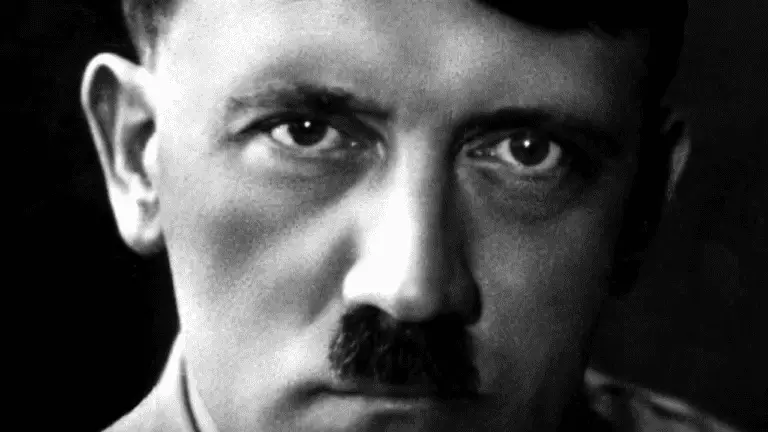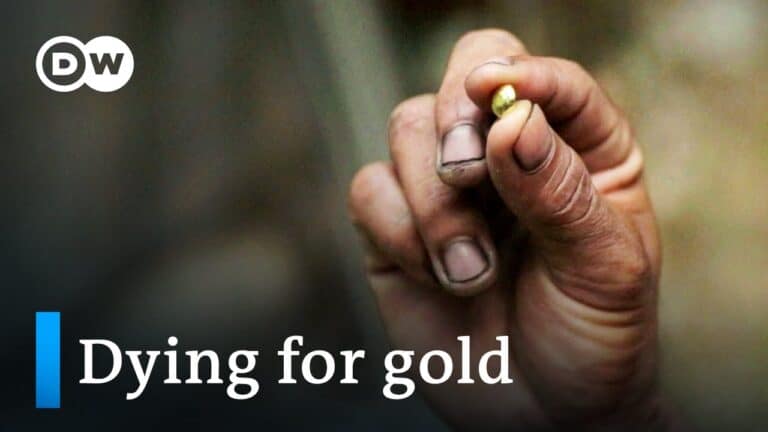10 Jaw-Dropping Fraud Documentaries You Need to See
In recent years, fraud has become an increasingly common topic in the media. From the infamous Fyre Festival scandal to the Theranos fraud case, many high-profile cases of fraud have made headlines and captured the public’s attention.
While news articles and social media posts can provide a brief overview of these cases, they often lack the depth and context needed to truly understand what happened and why. That’s where fraud documentaries come in.
Fraud documentaries offer an in-depth look at some of the most notorious cases of fraud in recent history. They provide a comprehensive overview of the events leading up to the fraud, the key players involved, and the aftermath.

These documentaries often feature interviews with the people involved in the fraud, as well as experts and journalists who have studied the case in detail.
Best 10 fraud documentaries
In this post, we’ve compiled a list of 10 fraud documentaries that are definitely worth watching.
Whether you’re a true crime buff or just looking for an interesting documentary to watch, these films are sure to captivate and educate you. So without further ado, let’s dive in!
1. INSIDE JOB Full Documentary – How the Financial Crisis Happened
The documentary film “Inside Job” examines the causes of the 2008 global financial crisis. It focuses on the deregulation of the financial sector in Iceland, which led to a bubble and a massive expansion of the country’s banking sector.
The three largest banks in Iceland borrowed 10 times the size of Iceland’s economy, and the bankers showered themselves and their friends with money.
The film also highlights the role of American accounting firms and credit rating agencies in the crisis, as well as the revolving door between government regulators and the banks they were supposed to oversee.
The film argues that the crisis was not caused by a few bad actors, but by a systemic failure of the financial system.
2. The Untouchables – fraud documentaries
“The Untouchables” is a documentary about the lack of prosecutions of Wall Street executives in the aftermath of the 2008 financial crisis. The documentary investigates why no senior Wall Street executives have gone to jail and why there have been no arrests.
Investigators needed to find proof of what the bankers knew and what they intended, meaning identifying people on the inside who were willing to talk.
The documentary includes interviews with people who worked for mortgage originator Countrywide and with other contractors who were involved in mortgage due diligence.
They allege that they were encouraged to overlook problems with mortgages that were being purchased by Wall Street banks. The lack of prosecutions is attributed to various factors, including the difficulty of proving criminal intent, a lack of resources, and a perceived lack of political will.
3. The Madoff Affair – fraud documentaries
On December 11, 2008, Bernard L. Madoff, a prominent Wall Street figure, admitted to running a massive Ponzi scheme, worth an estimated $65 billion, that had duped thousands of investors over many years.
This shocking revelation was a significant turning point in financial history, exposing the dangers and corruption that existed in the investment world. In a 2009 documentary, FRONTLINE delved deeper into Madoff’s deceitful scheme, aiming to uncover how he managed to carry out such a sophisticated scam undetected for so long.
Through exclusive interviews with insiders who worked closely with Madoff, such as his family members and colleagues, veteran FRONTLINE correspondent Martin Smith and producer Marcela Gaviria sought to unravel the intricate web of lies and deception that Madoff had spun.
The Madoff Affair explored how Madoff’s Ponzi scheme was the largest and most far-reaching business scandal in history, impacting victims across the globe and raising critical questions about the regulation of financial markets.
4. The FTX Disaster is Deeper Than you Think
The documentary is about the fall of FTX, the second-largest crypto exchange in the world. The CEO of FTX, Sam Bankman-Fried, lost his entire fortune of $26 billion in a single weekend.
The collapse of FTX led to the collapse of more than 100 affiliated companies and wiped out countless savings. Sam’s Empire was actually a bunch of 10 romantically involved crypto kids running a shady operation out of the Bahamas.
Sam supposedly believed in effective altruism but in reality, he would own a $30 million mansion in the Bahamas. Sam had an inner circle of 10 people who were all housemates, they partied together and had been involved in romantic relations with each other.
In 2019, Sam started his next major project, FTX, which was a cryptocurrency derivatives exchange. The video details the shadiness of the operations and how the collapse of FTX had consequences that could be likened to the intensity of Theranos but with a collapse as rapid as Lehman Brothers.
5. Elizabeth Holmes: The ‘Valley of Hype’ behind the rise and fall of Theranos
The documentary “Elizabeth Holmes: The ‘Valley of Hype’ behind the rise and fall of Theranos” discusses the story of Elizabeth Holmes, the founder of the Silicon Valley biotech start-up Theranos, and the company’s rise and fall.
The company, which promised to revolutionize healthcare by miniaturizing blood tests, imploded under a raft of lawsuits, regulatory actions, and SEC fines. Holmes faces criminal charges for allegedly defrauding investors, doctors, and patients.
The documentary explores the blurred line between entrepreneurship and fraudulent deception and questions who should shoulder the blame for the company’s failure.
Some believe that Holmes was a victim who relied on people who gave her bad advice or mismanaged her company. Others argue that her tactics were not so different from those of her Silicon Valley peers.
6. The Big Four – The Wirecard Fraud – fraud documentaries
The DW documentary examines the role of the “Big Four” accounting firms – Ernst and Young, KPMG, PwC, and Deloitte. These firms are influential and play a critical role in auditing the financial statements of medium and large companies which is necessary for trust and transparency in the economy.
However, the documentary points out that these firms are too powerful and have too much influence on politics and legislation. The Wirecard scandal in 2020, where EY audited Wirecard’s financial results for years without detecting fraud, brings attention to the Big Four auditors’ effectiveness.
The documentary also discusses how auditing only accounts for a third of the Big Four’s revenue, with two-thirds coming from consultancy services, creating potential conflicts of interest.
The companies hire and pay their auditors themselves, which can also create conflicts of interest, and auditors rarely uncover corporate scandals. The documentary raises the question of whether auditing is still effective, considering these challenges.
7. Enron The Smartest Guys In The Room – fraud documentaries
The Enron scandal was a financial and corporate scandal that involved Enron Corporation, one of the largest American energy, commodities, and services companies, which went bankrupt in 2001.
The scandal involved a series of fraudulent accounting practices and false financial reporting that misled investors and ultimately led to the company’s collapse.
Enron’s executives, including CEO Jeffrey Skilling and chairman Kenneth Lay, were accused of artificially inflating the company’s stock prices, hiding debt and losses in off-balance-sheet transactions, and engaging in other fraudulent accounting practices.
The company also manipulated energy markets, causing power shortages in California, and leading to widespread public anger and distrust in the energy sector.
The documentary “Enron: The Smartest Guys in the Room” explores the rise and fall of Enron and the personal and professional motivations that drove its executives to engage in unethical and criminal behavior.
The documentary features interviews with former Enron employees, journalists, and experts, as well as footage from congressional hearings and news broadcasts.
The Enron scandal had far-reaching consequences, leading to the passage of the Sarbanes-Oxley Act, which aimed to increase corporate accountability and transparency. The scandal also highlighted the need for greater regulatory oversight and ethics training in the business world.
8. Fraud Fighters: Hackers expose illegal call centers and phone scams
Marketplace, a show on CBC News, investigates phone scams in Canada and how they are executed by tracking the scammers in their own backyards. With millions of dollars lost each year, and scammers getting more sophisticated, the authorities have failed to stop them.
The investigation led to the arrest of several individuals charged with fraud, money laundering, and possession of property obtained by crime. The scammers are expert psychologists, looking for vulnerabilities in their victims to exploit and trap them.
Financial crimes expert Vanessa Lafolla comments that phone scams are more sophisticated than ever and the scammers are looking for people’s vulnerabilities to exploit.
9. The Uber Story: Fraud, Betrayal, Death & Cars
The documentary “The Uber Story: Fraud, Betrayal, Death & Cars” is a narration of the controversial history of Uber, starting from its origins in Paris in 2008. Despite its revolutionary idea, the story of Uber is filled with scandals and controversy, including its illegal operations, lawsuits, and violation of transportation laws.
The founder and former CEO, Travis Kalanick, previously worked on a failed entrepreneurial venture before starting Uber. The company’s success was driven by the convenience and luxury of its app-based service.
However, Uber faced legal challenges and opposition from traditional taxi services and local governments. The company also employed controversial tactics such as “grey balling” and organizing protests to resist regulation.
However, the success of Uber came at a cost, with the company facing numerous scandals and controversies. The company operated in a legally gray area, and frequently flouted regulations and laws in order to expand its business. They also faced accusations of unethical business practices, such as stealing trade secrets from their competitor, Waymo.
One of the most notable controversies surrounding Uber was its toxic workplace culture, which was characterized by sexism, harassment, and discrimination.
Numerous female employees reported being subjected to sexual harassment and gender discrimination, and several high-level executives were accused of inappropriate behavior.
In 2017, a former engineer named Susan Fowler wrote a blog post detailing her experiences of harassment and discrimination at Uber, which led to an investigation into the company’s workplace culture.
Another scandal that rocked Uber was the “Greyball” program, which the company used to evade regulators and law enforcement officials. The program was designed to identify and block anyone who was using the Uber app for investigative purposes, such as regulators or law enforcement officials.
When a user was identified as a potential threat, the app would display a fake version of the Uber map, showing no cars available in the area. This prevented regulators from being able to track Uber drivers and determine whether they were operating illegally.
Despite these controversies, Uber continued to grow and expand, and eventually went public in 2019. The company’s initial public offering (IPO) was one of the most highly anticipated in years, but it did not live up to expectations, and the company’s stock price fell soon after going public.
Despite this setback, Uber remains one of the most successful and recognizable companies in the world, and its story is a testament to the power of entrepreneurship and innovation.
Crypto: The World’s Greatest Scam
In the documentary “Crypto: The World’s Greatest Scam,” the speaker discusses the world of cryptocurrencies, NFTs, and blockchains, and how they have been accused of being a revolutionary technology and the greatest Ponzi scheme in human history.
The documentary talks about bizarre celebrity promotions and endorsements, eye-watering numbers, and grandiose claims about their potential. It highlights the sale of an NFT for $69.3 million and the sudden ubiquity of the term NFT.
The documentary also talks about the use of cryptocurrency in purchasing NFTs and the warning of a mania being driven by greed.
The machine that the nfts are a part of is the crypto industry, which has been accused of being a Ponzi scheme and a scam. Some critics warn that the whole system is driven by greed and that it is a mass delusion.
While some people have made a lot of money investing in crypto, others have lost everything. Many experts also warn that the crypto industry is highly speculative and unregulated, which makes it a risky investment.
Despite these warnings, the crypto industry continues to grow, with more and more people buying into the hype. The debate about whether crypto is a revolution or a scam is likely to continue for some time.
Conclusion
In today’s world, fraud and corruption are unfortunately all too common. However, by watching these 10 fraud documentaries, we can gain a better understanding of the events and people behind some of the most notorious cases of fraud in recent history.
From the Enron scandal to the Theranos fraud case, these documentaries provide a comprehensive and in-depth look at the rise and fall of some of the most innovative and successful companies in the world. They also highlight the role of greed, ambition, and hype in the world of business and finance.
If you’re looking to learn more about corporate accountability, financial regulation, and the psychology of white-collar crime, then these fraud documentaries are a great place to start.






